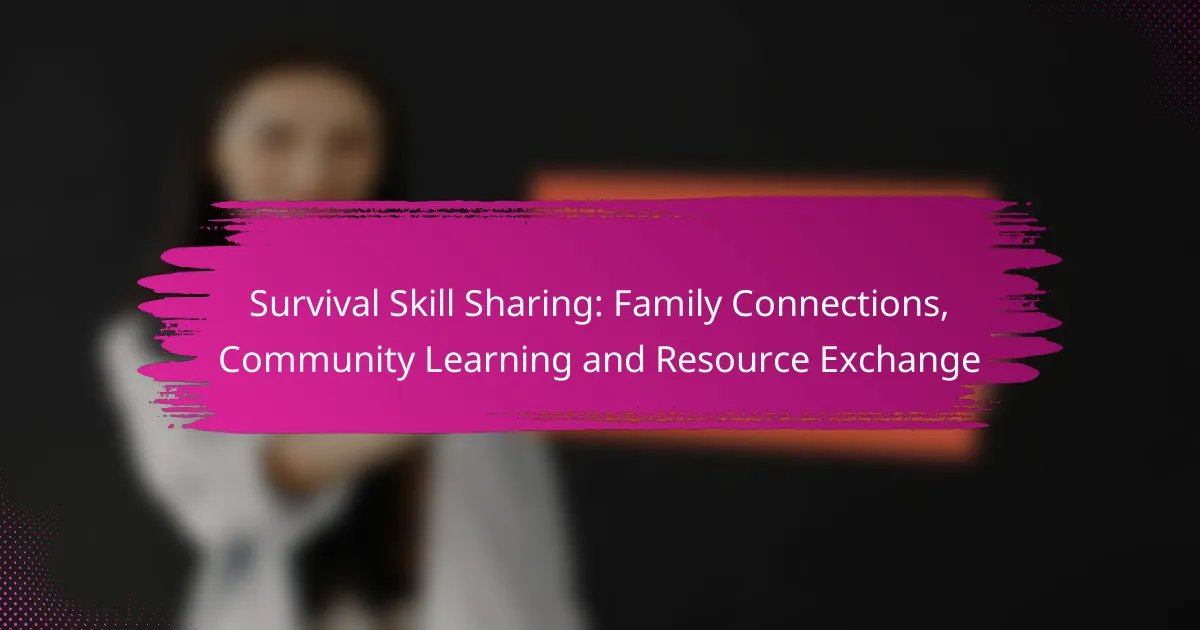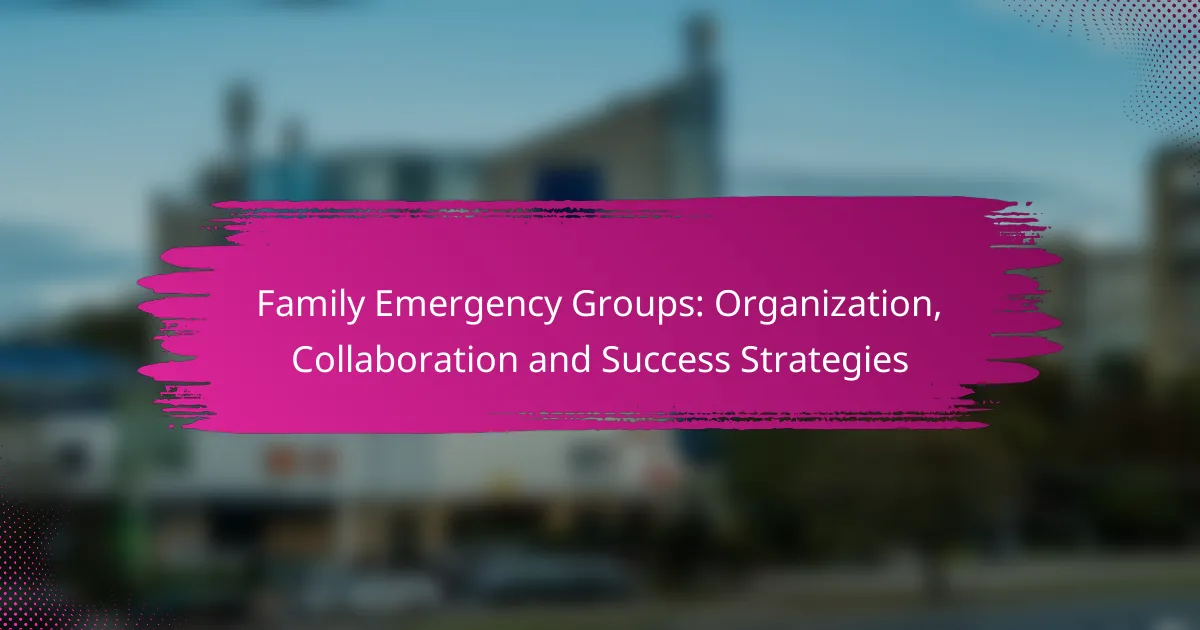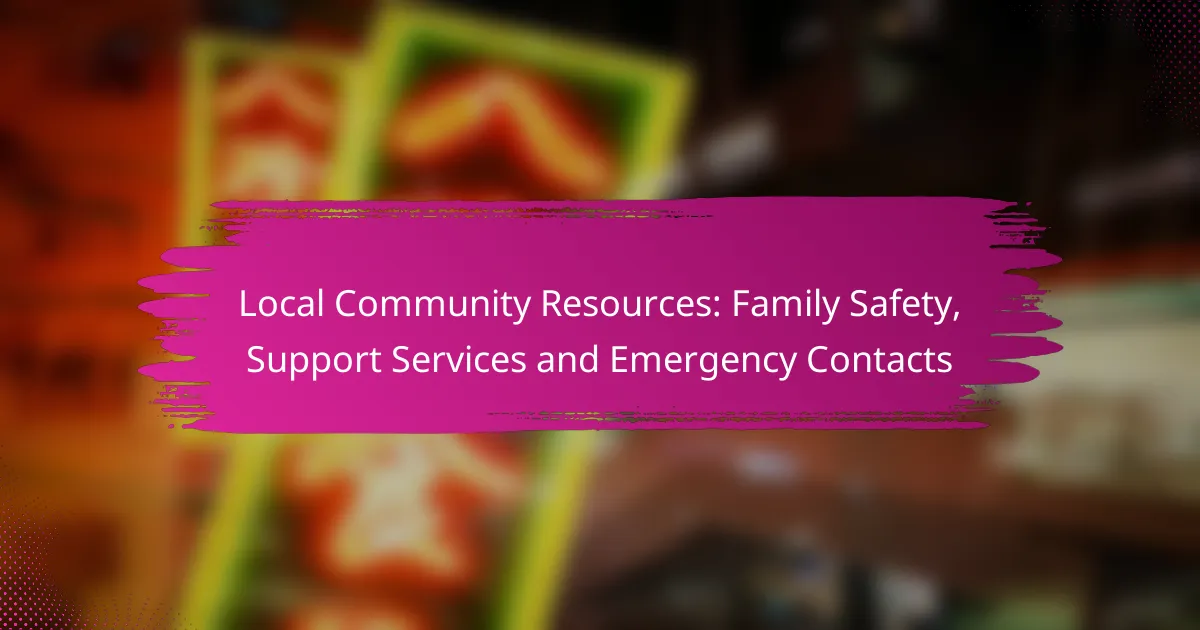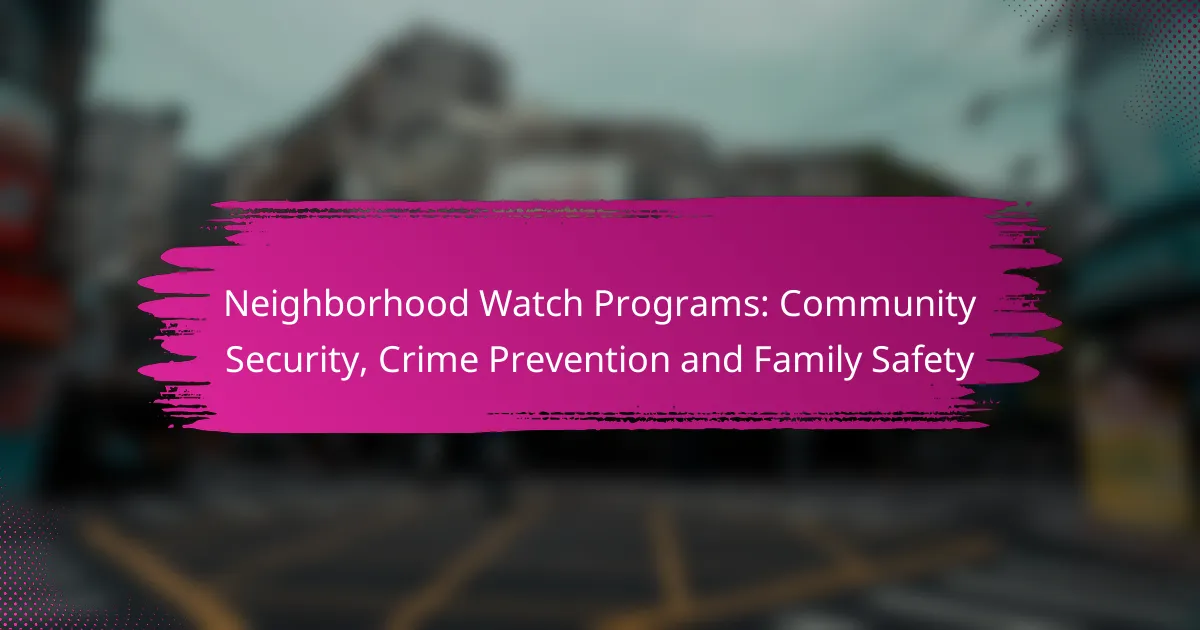Survival skill sharing among families is vital in urban settings, where organized community efforts and online platforms can facilitate collaboration and resource exchange. By participating in hands-on classes and local networks, families can enhance their resilience and preparedness through shared knowledge and skills. This collaborative approach not only strengthens individual capabilities but also fosters a sense of community, ensuring that everyone has access to essential resources and expertise.
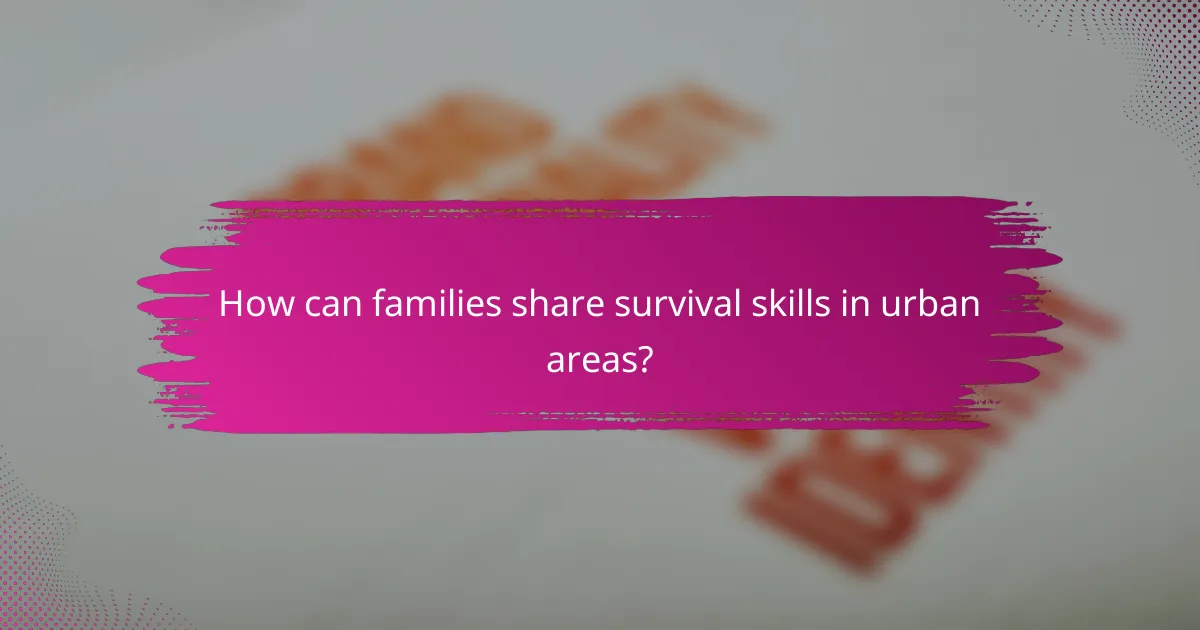
How can families share survival skills in urban areas?
Families can share survival skills in urban areas through organized community efforts, events, and online platforms. These methods foster collaboration and resource exchange, enabling families to learn essential skills that enhance their resilience in city environments.
Community workshops
Community workshops provide a structured environment for families to learn survival skills together. Local organizations or community centers often host these workshops, covering topics such as first aid, food preservation, and emergency preparedness. Participants can benefit from hands-on experiences and expert guidance.
To find workshops, check local community boards, social media groups, or municipal websites. Many workshops are free or offered at a low cost, making them accessible to a wide audience.
Family skill-sharing events
Family skill-sharing events encourage families to teach each other their unique survival skills. These gatherings can be informal, such as potlucks or neighborhood meet-ups, where each family presents a skill, like gardening, cooking, or basic repairs. This format promotes bonding and knowledge exchange.
Consider organizing a monthly event where families rotate hosting duties, allowing everyone to contribute and learn. Keep the atmosphere relaxed and supportive to encourage participation from all ages.
Online platforms for skill exchange
Online platforms for skill exchange facilitate connections between families looking to share and learn survival skills. Websites and apps dedicated to community learning allow users to post skills they can teach and skills they wish to learn. This flexibility helps families find relevant resources at their convenience.
Popular platforms include local Facebook groups, Nextdoor, and specialized skill-sharing websites. When using these platforms, ensure to verify the credibility of users and consider arranging initial meetings in public spaces for safety.

What are effective community learning strategies for survival skills?
Effective community learning strategies for survival skills include hands-on classes and local networks that facilitate skill sharing. These approaches foster collaboration and resource exchange, enhancing the overall preparedness of individuals and families.
Local survival skill classes
Local survival skill classes provide structured learning environments where participants can acquire essential skills such as first aid, foraging, and shelter building. These classes are often led by experienced instructors and can be found through community centers, outdoor organizations, or local universities.
When choosing a class, consider factors such as the instructor’s qualifications, class size, and the specific skills being taught. Many classes are offered at varying levels, from beginner to advanced, allowing individuals to select the right fit for their experience.
Neighborhood skill-sharing networks
Neighborhood skill-sharing networks encourage residents to share their unique survival skills with one another. These informal groups can be formed through social media platforms, local bulletin boards, or community events, creating a supportive environment for learning.
To establish a successful skill-sharing network, start by identifying community members with relevant skills and organizing regular meetups. This can include workshops, potlucks, or skill exchange days, where participants can teach and learn from each other. Be mindful of scheduling and accessibility to ensure maximum participation.
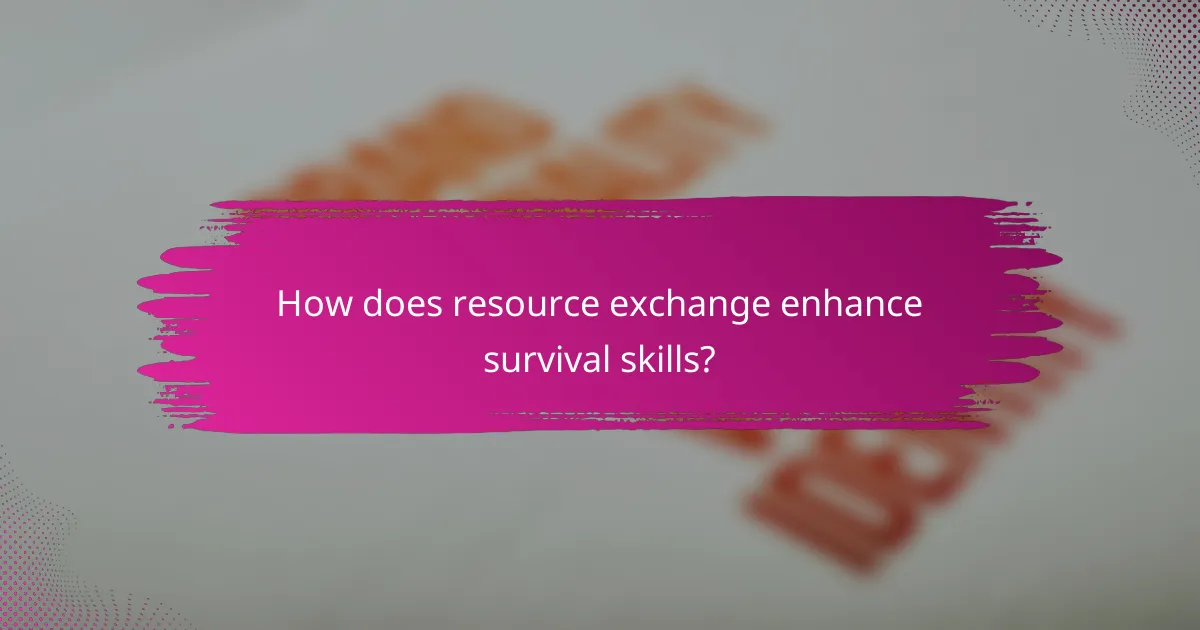
How does resource exchange enhance survival skills?
Resource exchange enhances survival skills by fostering collaboration and knowledge-sharing among individuals and communities. By trading skills, tools, or materials, people can access a wider range of resources and expertise, improving their overall preparedness and resilience.
Bartering systems
Bartering systems allow individuals to trade goods and services directly without using money. For example, someone skilled in gardening might offer fresh produce in exchange for carpentry work. This method not only saves money but also builds community ties and encourages skill development.
When engaging in bartering, it’s essential to establish clear agreements on the value of exchanged items. Consider using a simple checklist to ensure both parties understand what is being traded, including quality, quantity, and delivery timelines. Avoid common pitfalls like overestimating the value of your own skills or goods.
Resource-sharing apps
Resource-sharing apps facilitate the exchange of skills and materials through digital platforms. These applications connect users looking to share resources, such as tools or expertise, making it easier to find local partners. Popular examples include platforms that allow users to lend or borrow items within their community.
When using resource-sharing apps, ensure you read reviews and verify the credibility of users. Look for apps that offer features like user ratings and secure communication to enhance safety. Additionally, be mindful of local regulations regarding sharing and borrowing to avoid potential legal issues.
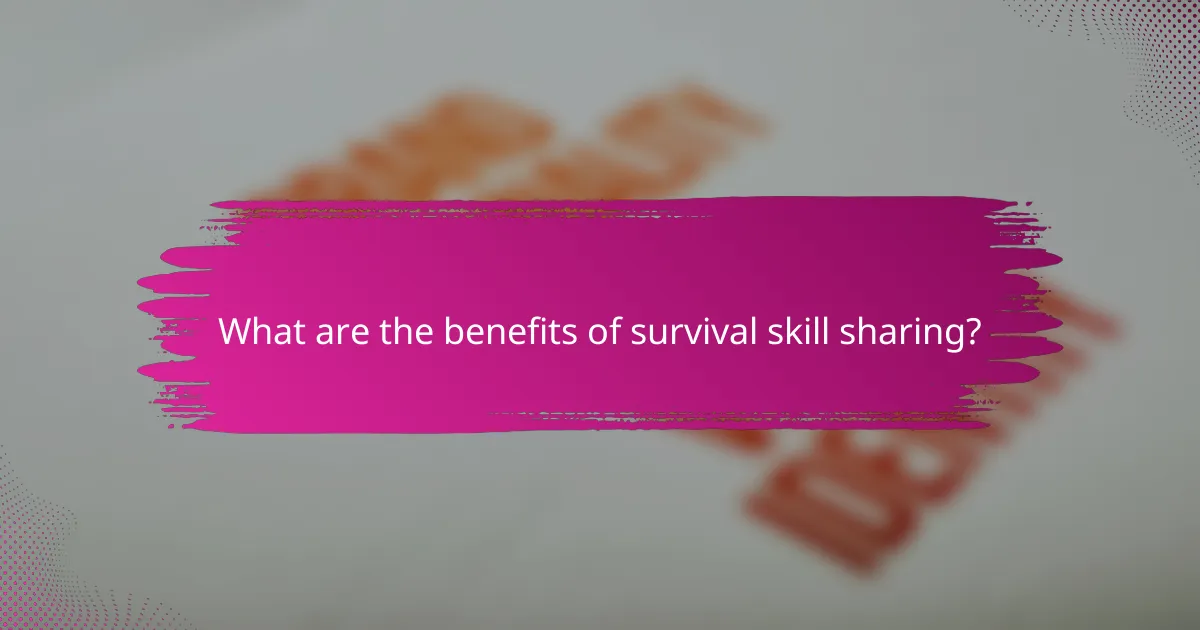
What are the benefits of survival skill sharing?
Survival skill sharing offers numerous advantages, including enhanced preparedness and stronger social ties. By exchanging knowledge and resources, families and communities can better equip themselves for emergencies and foster a supportive environment.
Strengthened family bonds
Sharing survival skills within families can significantly enhance relationships. Engaging in activities like camping, first aid training, or gardening together promotes teamwork and communication, creating lasting memories.
Families can develop a shared understanding of safety practices, which not only prepares them for emergencies but also instills a sense of trust and reliance on one another. Regular skill-sharing sessions can become a bonding ritual, reinforcing familial connections.
Increased community resilience
When communities engage in survival skill sharing, they build a network of support that enhances overall resilience. Local workshops on skills such as food preservation, emergency response, or self-defense can empower residents to face crises collectively.
Communities that prioritize skill sharing often see improved resource management and collaboration during emergencies. Establishing local groups or clubs focused on survival skills can facilitate ongoing learning and create a culture of preparedness, making neighborhoods safer and more cohesive.
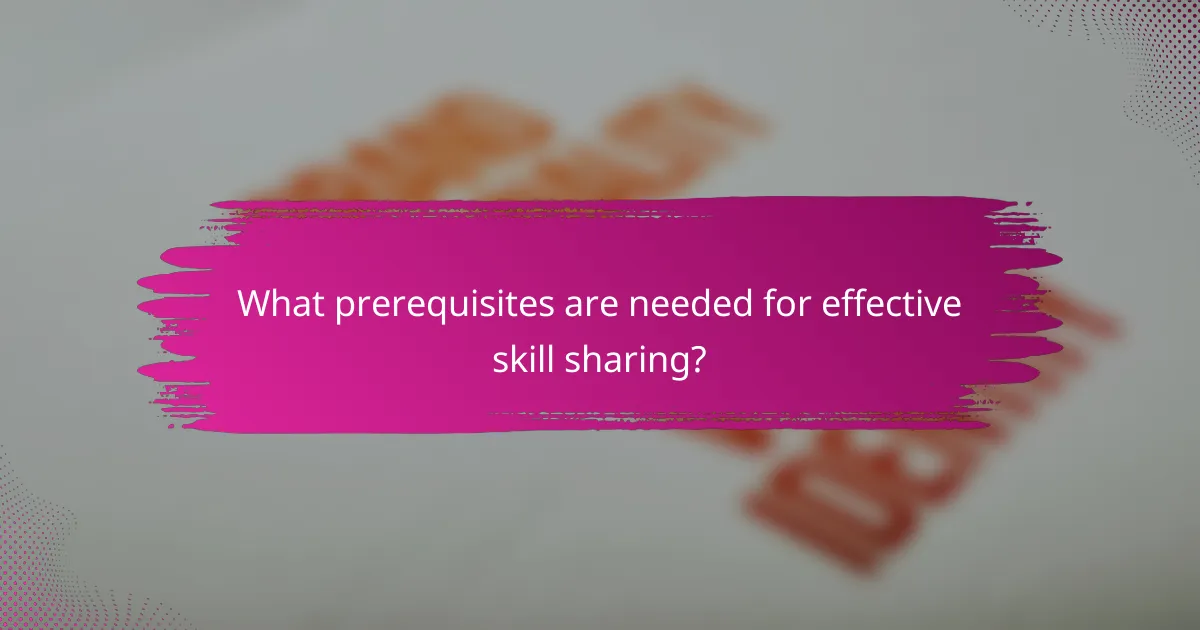
What prerequisites are needed for effective skill sharing?
Effective skill sharing requires a foundational understanding of survival techniques and access to community resources. These prerequisites ensure that participants can both teach and learn effectively, fostering a supportive environment for knowledge exchange.
Basic survival knowledge
Having basic survival knowledge is crucial for effective skill sharing. This includes understanding essential skills such as fire making, shelter building, foraging, and first aid. Participants should be familiar with these concepts to share their expertise confidently and accurately.
To build this knowledge, individuals can take courses, read survival manuals, or practice skills in real-life scenarios. Engaging in local workshops or community events can also enhance understanding and provide hands-on experience.
Access to community resources
Access to community resources significantly enhances the effectiveness of skill sharing. This can include local libraries, community centers, or outdoor clubs that offer tools, spaces, and materials for practice. Having these resources available encourages collaboration and supports ongoing learning.
Additionally, forming partnerships with local organizations can provide access to expert instructors and specialized workshops. Individuals should seek out these connections to enrich their skill-sharing experiences and broaden their network of knowledge.
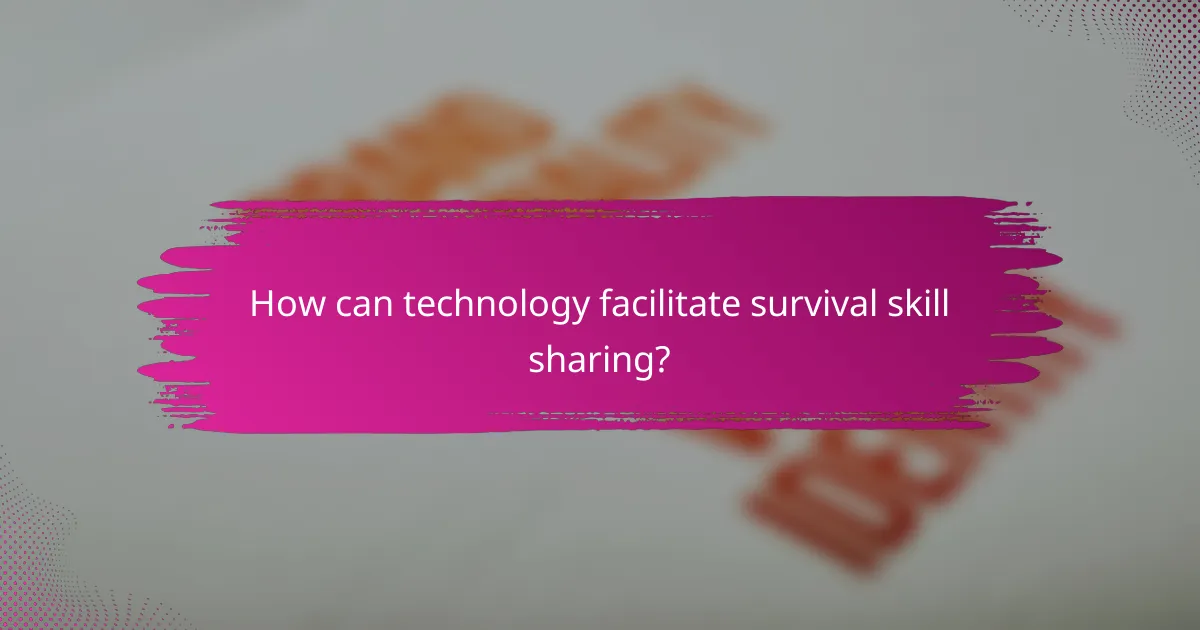
How can technology facilitate survival skill sharing?
Technology enhances survival skill sharing by providing platforms for individuals to connect, exchange knowledge, and access resources. Through mobile apps and online communities, people can easily find and share skills relevant to their needs and interests.
Mobile apps for skill exchange
Mobile applications designed for skill exchange allow users to offer and request specific survival skills. Apps like Meetup or Skillshare enable users to create profiles showcasing their skills, such as foraging, first aid, or navigation, and connect with others in their area. This can lead to in-person workshops or virtual classes.
When choosing an app, consider user reviews and the active user base in your locality. Look for platforms that facilitate direct communication and scheduling to streamline the learning process. Popular apps may charge fees, so evaluate the cost against the potential benefits of skill acquisition.
Online forums and social media groups
Online forums and social media groups provide a space for individuals to share survival skills and experiences. Platforms like Facebook and Reddit host numerous groups focused on various survival topics, where members can ask questions, share tips, and organize meetups.
Engaging in these communities can enhance your learning experience. Be proactive in asking for advice and sharing your own knowledge. However, always verify the information you receive, as not all advice may be accurate or safe. Look for groups with active moderation to ensure quality discussions.
